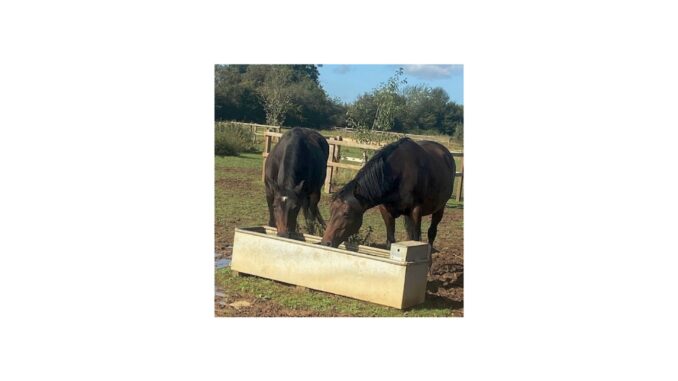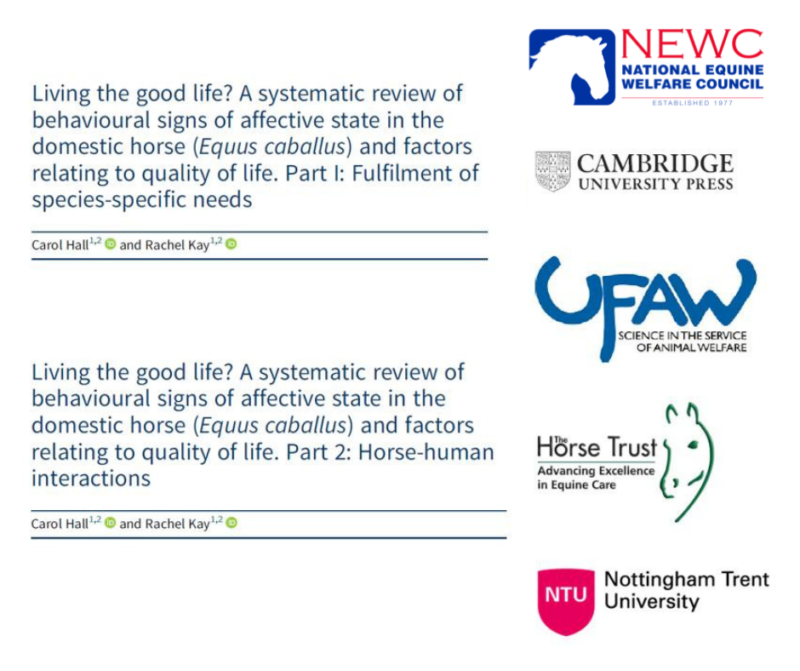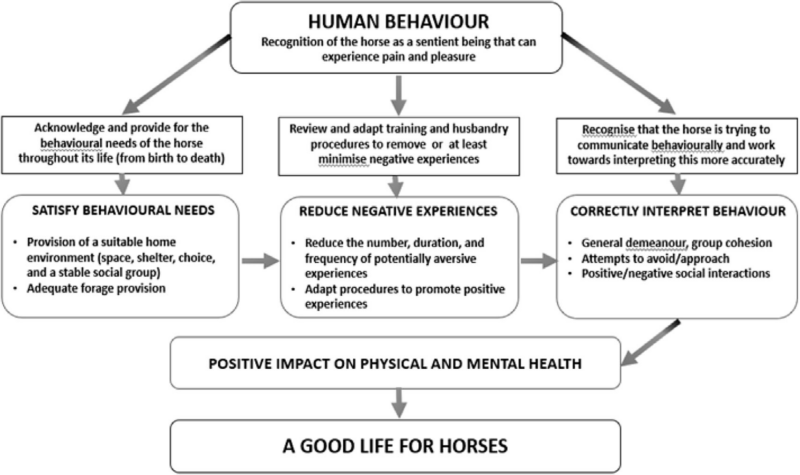
The National Equine Welfare Council (NEWC) is pleased to announce the publication of a groundbreaking two-part study that delivers a comprehensive review of factors influencing the well-being of domestic horses.
The research, published in the Universities Federation for Animal Welfare (UFAW) journal, Animal Welfare, identifies essential needs and the profound impact of human interactions on horse welfare, offering practical recommendations for improving horses’ quality of life (QoL).

A comprehensive review of relevant scientific literature revealed that many current horse management practices do not fully address species-specific needs and that human-horse interactions may not always be positive for the animal.
Key findings from the first paper emphasise that fulfilling horses’ species-specific needs—such as providing adequate space, social companionship, and access to forage—is vital for their physical and emotional well-being. Horses exhibit positive emotional behaviours when these needs are met, including affiliative interactions and reduced stress-related behaviours.
The second paper explores the horse-human relationship, noting that human interactions can both positively and negatively affect a horse’s well-being. It highlights that while positive experiences with humans, such as gentle handling and trust-building exercises, can improve a horse’s well-being, aversive interactions or unrecognised pain can have long-term negative effects. The research suggests adopting management practices that reduce negative stimuli, ensuring that interactions with humans promote pleasure and trust.

Based on these findings, the researchers have outlined key recommendations aimed at enhancing horse welfare through improved management practices:
- Prioritise providing horses with space, companionship, and free access to forage to meet their natural behavioural needs.
- Minimise negative human-horse interactions by improving handling techniques and training methods.
- Recognise and address behavioural signs of pain early to prevent negative impacts on a horse’s emotional health and well-being.
The researchers hope their findings will contribute to better equine management practices, encouraging a shift toward more humane treatment that improves the overall quality of life for horses. The conclusions from this research will also directly inform the upcoming revision of the NEWC Code of Practice.
Co-author and Director of NEWC, Dr Carol Hall, said “Unfortunately, most domestic horses aren’t living as good a life as they could or should be. Our review highlights several areas where current management and training practices fall short. Ensuring basic provisions like space, companionship, and adequate forage is essential for their well-being, yet these needs are often unmet.”
“It was also clear from the literature that behavioural signs, which could indicate how horses feel during human interactions, are often ignored or misinterpreted. Restrictive practices limit their ability to withdraw from unpleasant situations, leading to long-term negative effects.”
NEWC Chair, Carolyn Madgwick said “On a positive note, this extensive review allows us to pinpoint numerous ways to improve the lives of domestic horses. The NEWC Code of Practice is currently being updated and will incorporate these findings to advance equine welfare nationwide.”
With support from The Horse Trust, who funded the preliminary stage of this research, and Nottingham Trent University who facilitated the Open Access publication, this research represents a significant step forward in driving evidence-based improvements in equine welfare practices.
Access the Research:
 Part 1: doi.org/10.1017/awf.2024.38
Part 1: doi.org/10.1017/awf.2024.38
 Part 2: doi.org/10.1017/awf.2024.41
Part 2: doi.org/10.1017/awf.2024.41
Leave a Reply